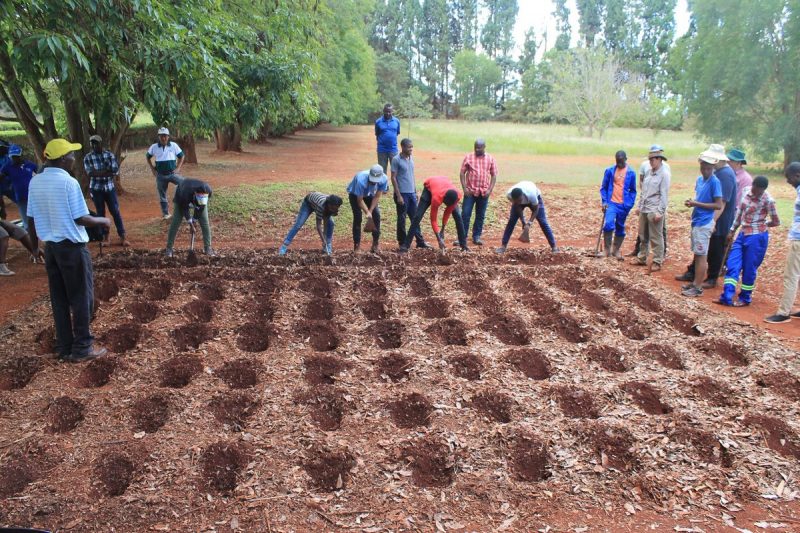THE Agriculture ministry says the climate-proof Presidential Pfumvudza/Intwasa Inputs Scheme is going on smoothly as it has surpassed its distribution target by 109 percent.
Speaking to the Daily News yesterday, Agritex deputy director of crops Kundai Makuku said there was more than enough seed for this planting season under the scheme.
“We were targeting 15 000mt of maize seed of which 18 079mt have been delivered to the Grain Marketing Board (GMB), which is 121 percent of our initial target,” Makuku said.
“So far, 16 412mt have been distributed to farmers, indicating a 109 percent target mark. Our new target is 3,3 million from 2,3million households this season, including peri-urban farmers.
“Soya bean distribution has gone well too, GMB received 2 408mt and our target was 2 000mt and farmers have received 1 971mt. Pearl millet is at 57 percent, sorghum at 43 percent.
“Basal fertiliser status is 115 000mt, GMB received 91 298mt and 77 417mt has been distributed to farmers. Top dressing target was 90 000mt and GMB got 2 718mt and 1 645mt has been distributed.”
This comes as some households have complained to the government that they were yet to receive the inputs.
However, Makuku said those that have not received the inputs were yet to comply with the Pfumvudza/Intwasa requirements which are monitored by local committees.
“Beneficiaries should do conservation methods before receiving inputs and some do not follow those conditions. The government has put in place measures that will accommodate the vulnerable,” she said.
“There is going to be outcry from farmers saying they did not receive the inputs because they would not have followed the requirements and some add their family members as individual households while they are under one homestead.
“The committees monitor everyone, ensuring people are not lying and every household receives inputs.”
Meanwhile, Makuku said erratic rainfall patterns have necessitated most farmers to replant their crop, but it would be hard for the government to provide them with short-term seed varieties.
“We depend on what the Meteorological Department Services (MSD) forecast, but farmers have already been affected by dry spells that prevented crop germination and moisture stress,” she said.
“The MSD says farmers may continue planting as there is a normal to above normal rainfall season, but short-term seed varieties should be used.
“For now, we cannot predict the outcome of this season due to climate change affecting our rainfall patterns.
“Some farmers are replanting for the third time, but those who practised Pfumvudza are surviving what we are experiencing now, there is a sufficient maize seed supply at GMB depots.
“The challenge is switching to short-term varieties as there has already been distribution of long-term seeds. Farmers will receive inputs for replanting, but that will be determined by their local committees who will ascertain that the farmer surely planted and has to replant as we surpassed the target distribution.”
by
Melisa Chatikobo
STAFF WRITER





